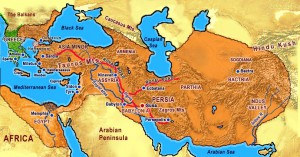
Pakistan: Pakistan's National Assembly on Wednesday formally elected Nawaz Sharif as prime minister. Sharif, 63, leader of the Pakistan Muslim League-N, was elected by an overwhelming majority. He received 244 of the 317 votes cast by assembly members. Many parties voted en bloc for Nawaz Sharif to curry favor with the new government.
President Zardari administered the oath of office at President House.
Prime Minister Sharif delivered a brief speech on the floor of the National Assembly after his election. He said, “The chapter of drone attacks on the country's soil should now be closed. As we respect others' sovereignty, ours should also be given respect. This campaign must come to an end.”
He also addressed Pakistan's many problems. In Churchillian fashion, he said he would not make attractive promises to the masses nor talk about any imaginary heaven on earth. He openly sided with the productive forces of the country agriculture, industry and exports, as the keys for economic revival. He said he would tolerate no corruption and nepotism and that the doors of dictatorship had been closed forever.
The only foreign country mentioned was China. The Prime Minister said he would form a study group to work on establishing a rail link to western China from Karachi and the Arabian Sea port of Gwadar via the Khunjerab Pass in the north. He plans to give free port status to the Chinese built and now managed new port of Gwadar in western Pakistan.
Comment: Pakistan has the weapons to shoot down drones, but has declined to use them, apparently to avoid jeopardizing US military aid each year. The Pakistan Army has received $25-26 billion in US military aid since 2001.
Nawaz Sharif is likely to reopen the bidding in this deal. For starters, he has committed his government to friendlier ties with India which he sees as a market for Pakistani exports that will jump-start the economic revival, as he calls it. Peace with India reduces the urgency of constant injections of US military aid for the Army.
Secondly, he remains determined to open talks with the Pakistani Taliban, which would remove the requirement to use the Army in support of civil authority in the tribal agencies. If he makes progress the Army can go back to barracks.
Finally, he clearly has tilted to China, which has been the primary source of military equipment from nuclear weapons designs to delivery systems, combat aircraft and naval ships for the Pakistani armed forces for more than half a century, without interruption. With Chinese help and reduced operational commitments the Army has a potential opportunity to restore its capabilities.
Nawaz Sharif's comments during the election campaign and today show that he judges there is little to build on since he was overthrown by Musharraf in 1999. The slate is clean and he has a clear mandate from the electorate for doing new things.
Phi Beta Iota: Violence and weapons and bribery have their limits — they are not sustainable in the face of demographic and natural realities that cost nothing and last forever. Ambassador Rice, as the new National Security Advisor, will be either the last of the lame, or the first of the holistic National Security Advisor. Admiral James Stavrides got it right — Open Source Security. No one in the US Government knows how to do this, in part because no one in the US Government has a mandate to produce intelligence with integrity for Whole of Government and Whole Earth stabilization & reconstruction.
See Also:



